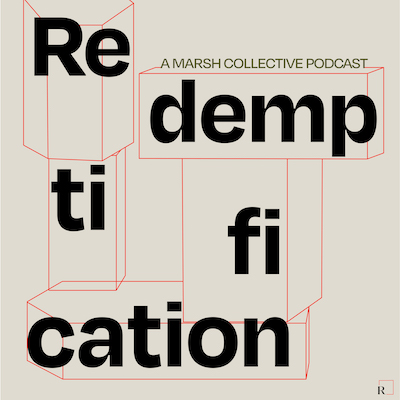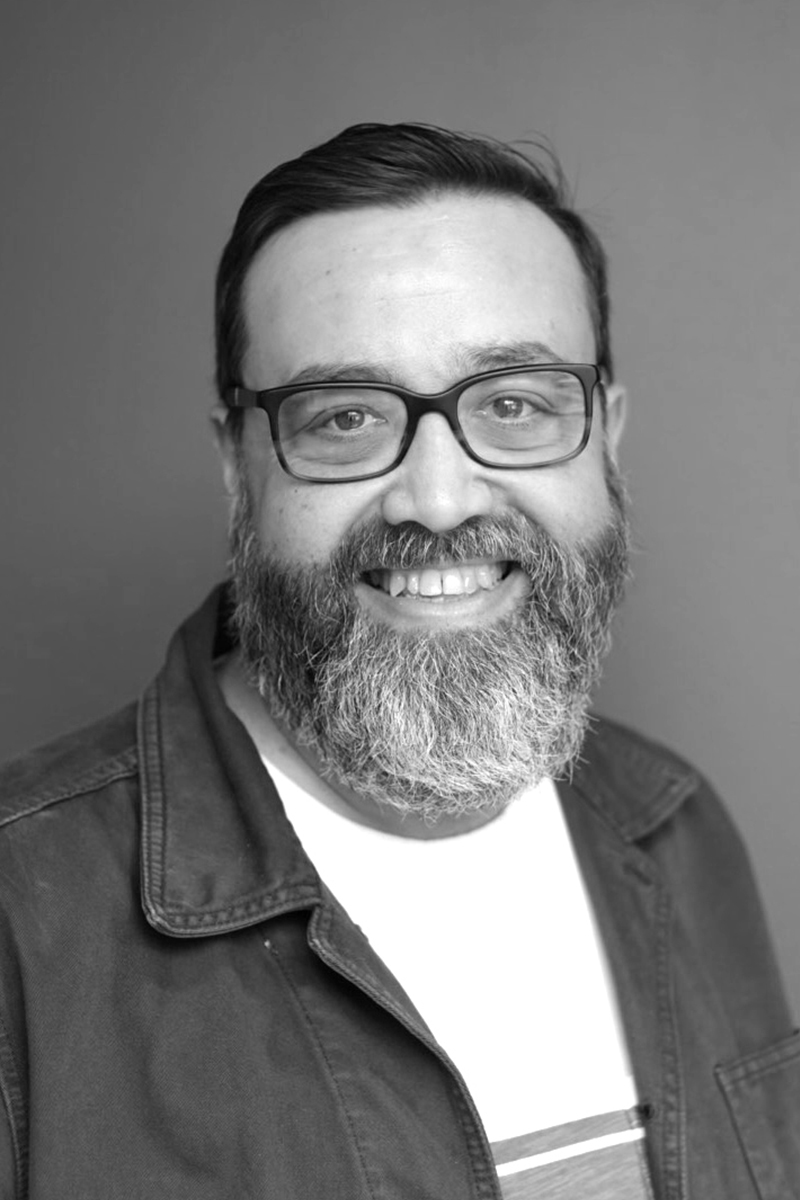The Long Hold; How a Redemptive Lens Can Change Capital with special guest Luke Roush
John has a riveting conversation this week with a “modern day Captain America”, Luke Roush. Luke is the tip of the spear for Sovereign’s Capital, a Fund that aims to see God’s love expressed through the world of Private Equity. Join us on a wild ride as John and Luke discuss the whole gamut of challenges that have to be overcome in the purchase of over 100 companies.
Insights & Inspirations
- John Marsh (01:06): It’s more important who you’re with than what you’re doing
- John Marsh (04:48): your intentionality to this is beautiful because there are people on our team who have paid the price to have more wisdom and genius and gifting around a certain area. And if we can’t leverage that within our team, how much more difficult we start going outside trying to find answers somewhere else
- Luke Roush (06:14): So how do we collaborate in a number of ways that are very appropriate with the secular world? We do not as a group, I think, want to resort to retreating into some sort of a holy huddle. We need to be in the world and engage with the world and collaborating where we can with the world and yet not lose sight of the fact that we do it all for the glory of God
- John Marsh (07:21): the difference, entangled and woven is intention.
- Luke Roush (09:48): there’s a pretty good range. Most roles, you know, don’t have to be totally typecast into one particular profile, but you know, got to recognize that it’s sort of like a rubber band. The more you stretch someone out of where they’re naturally wired, the more it’s kind of always pulling ’em back.
- Luke Roush (11:13): what I always tell our team is that in the absence of communication, everyone assumes the worst. And I know that I’ve experienced that for 20 years, 25 years, and yet I still forget it. And so when I don’t hear from a C E O for two, three months, I immediately think something must be jacked.
- Luke Roush (11:57): I think particularly in today’s work environment where everybody’s remote, the importance of keeping a short list of accounts. If there’s something that’s bothering me about Henry man, I better call him up and tell him within a day or two of, Hey, this is kind of troubling me and I just got to get it out on the table. It’s taking stones that I naturally want to carry in my knapsack around and just unloading them
- Luke Roush (14:02): one of the things that actually I think gives our profession a bad reputation. So one of the reasons why private equity is so maligned is that in a lot of cases they’re either one of a couple of things that go wrong. One is that there’s not clarity around expectations on the front end. So a private equity firm might dance around how long they’re going to hold an investment or how they’re going to decide whether they put additional growth equity into the investment. They just kind of remain a little bit nebulous on that because they don’t really want to get out in the open on a shorter hold period, for example, or some milestones that are definitely going to need to be hit before additional capital is put in. And so what we’ve found is that the more you can be clear around expectations on the front end and in the interim if there’s something that’s not going well, you need to be able to talk about that without too much time going by
- Luke Roush (21:22): There are certain businesses where the kind of culture that we feel like we want to be a part of building in and through our portfolio, there are certain businesses, certain industries where those things are more likely to correlate with business success
- Luke Roush (21:39): And then there are other businesses that are no better or worse, but they’re just a little less relational where we probably are going to be less able to value add. And so what we’ve learned is that there’s tons of businesses out there. We look at a hundred, we make one or two investments. And so we want to be patient and really thoughtful around our cadence and pacing and making sure we start with a relationship. We always say we want people to have us as a partner because we are more of a line rather than a dot. We want to invest in lines, not dots. It’s easy to look at a company that’s going through a transaction and say, here’s where they are. But if you’ve had a chance to walk with each other for a mile or maybe two miles, you’ve got a much better, clearer understanding of how’s this going to be once we’re married and running down the road together
- Luke Roush (25:30): We like to believe that in the long term, and even really in the medium term, the likelihood that you can make decisions that are in favor of human flourishing, in favor of really creating world-class culture and having those decisions correlate to business results very high in the medium to long term. We believe that short term investment decision making puts people at odds with profit more so than we would like. And so we don’t really do anything inside of five or seven years. Everything we do is sort of aimed at seven to 10 years time frame
- Luke Roush (27:27): figuring out ways to sort of reimagine, recreate, redefine existing spaces, these treasures in small towns and big cities all over America represents a huge opportunity for real estate investors
- John Marsh (28:14): there’s something beautiful about the last generation’s aspirations and work
- Luke Roush (29:47): our role as business leaders is not to recreate church outside the church. The church is God’s plan A to reach and convene his people. And there is no plan B. Having said that, whereas you go to church and you tithe, you’re actually writing checks as part of being a church member. In the context of business, we pay people to come to work and we have ’em for 40 hours or more a week.
- Luke Roush (31:45): the idea is that we want to be able to have everyone bring their whole self to work, and that we want to be able to care for that whole self. And what that looks like is not just a steady paycheck and competitive benefits, it also involves being able to care for the mental emotional needs that come up. And we’ve all found ourselves in ditches on things either relating to our marriage or kids or outside business dealings that have become challenging or extended family. And so investing in people who can reinforce that core value of who we are is really, really important.
- John Marsh (35:20): I love my buddy Brent Beshore says two things. He said, money comes with people, and the people is the big thing
- Luke Roush (36:00): the original foundational principle of sovereigns was that capital has influence and that influence can be a good thing or it can be a challenging thing. And so nowadays, a lot of people like to complain about Larry Fink and BlackRock and what’s happened. What was originally something that we all felt good about with E S G has kind of shifted in a different direction in more recent years. And I think that as believers, it’s our job not to just complain about that reality, but to actually wade in and be a part of having our voice be heard.
- Luke Roush (36:42): how we vote our proxies on public companies, how we vote with our dollars in terms of asset managers that we allocate to, and then at the same time encourage them towards what God might be pushing them into, I think there’s a great opportunity to actually seize that influence that we all have as believers who are also investors, rather than just abdicate that authority to others.
- John Marsh (37:16): influence is something given by God to be stewarded. And I would say just as intentional as your dollars
- Luke Roush (39:01): We want to back up the truck and say, we want to be providers of capital to businesses where we see human flourishing occurring, where we see a full manifestation of the gospel and what it looks like to love your neighbor in and through a company, to be redemptive, restorative, creative in the work that we’re doing. We want to be able to be positively screening and known for what we’re for rather than just what we’re against.
- Luke Roush (43:14): with equity, you got to be right about the idea with debt. You got to be right about the idea and the timing,
- Luke Roush (43:20): we try to underlever our deals in terms of debt and over so that we and the founders sleep better at night and also have more optionality as we see what it’s like to actually run the business in the first two or three years.
Information & Links
- Connect and learn more about what we do at https://www.marshcollective.com/
- Connect with Marsh Collective on LinkedIn
- Connect with Marsh Collective on Facebook
- Luke Roush – LinkedIn
- Sovereign’s Capital – website
- Simon Sinek – Start with Why
- Casey Crawford – Casey Crawford is the co-founder and CEO of Movement Mortgage, a top 10 national retail mortgage lender and six-time member of the Inc. 5000 list. Movement originated $30 billion in residential mortgages in 2020 and gave $200 million of its profit to the Movement Foundation. Casey is also the chairman of Movement Bank and founder and chairman of Movement Schools, a network of tuition-free public charter schools providing world-class academics and character education in underserved neighborhoods.
- Corporate Chaplains of America – website
- Provision – Plan – Promise – link
Closing Questions
What have you read that we should read?
- Stephen Phelan – Loving God, and Loving People – website
Who do you know that we should know?
- Mark Whitacre
What have you done that we should do?
- … if you’ve never hiked the slot canyon that leads to the Grand Canyon called the Havasu Canyon Hike, it is about three hours north of Phoenix. You take off from Huai Hilltop and hike down to the Havasu Indian reservation. There’s three spectacular waterfalls down in the canyon that are just extraordinary. You can swim in so great summer adventure, very difficult to get reservations, but if you show up with some amount of cash, you can usually find a campsite.




